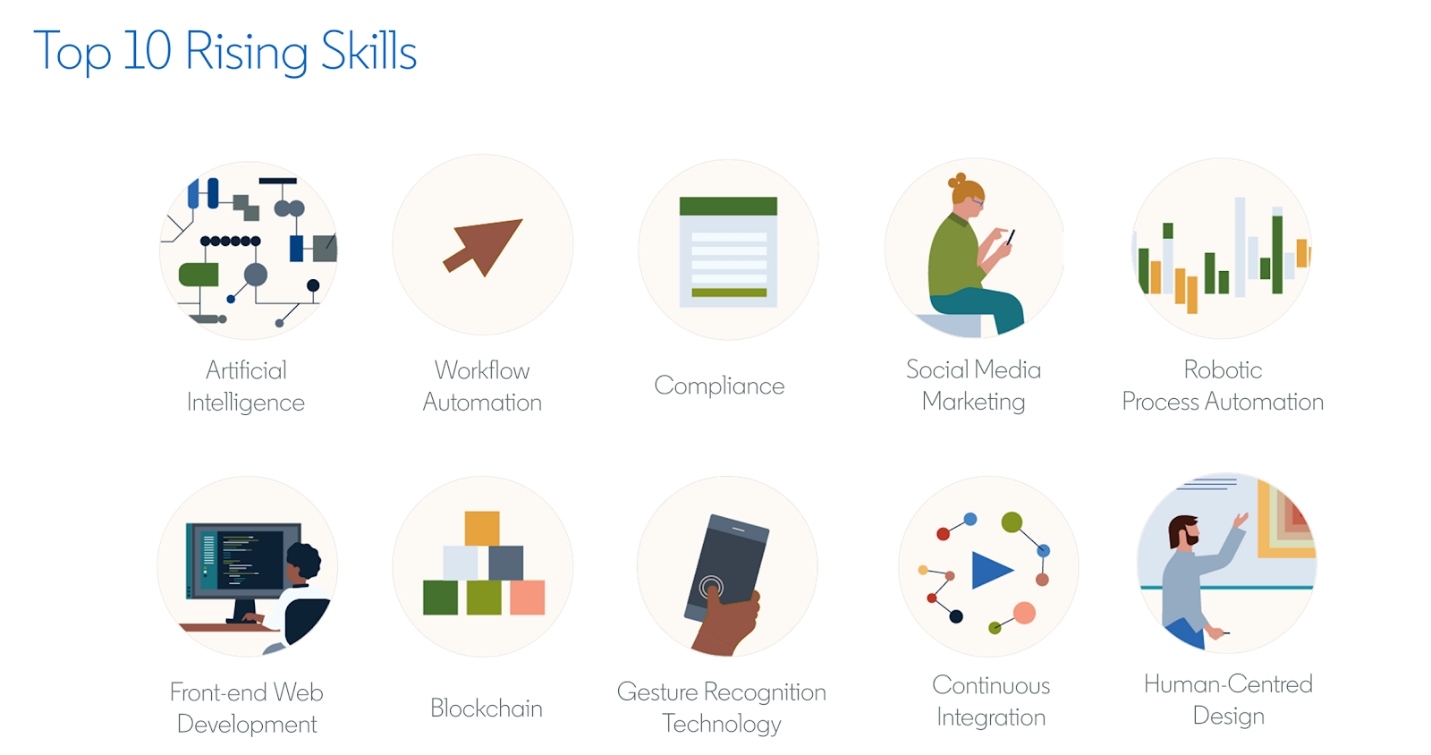
LinkedIn, the world’s largest professional network, launched the Future of Skills 2019 Report, which identifies the top 10 rising skills of LinkedIn members in the region over the last 5 years, by looking at the skills listed by members with the highest month-on-month growth. As part of the report, LinkedIn also conducted a deep dive into employees’ readiness to tackle the future workforce and how L&D professionals are responding to the skills transformation.
Anticipating rising skills to ensure businesses stay competitive
As traditional industries adopt new technology and ride the wave of digital transformation to improve operations and introduce new products and services, it is unsurprising that the top rising skills in APAC are dominated by technology-related skills.
These rising skills can be used as a signpost for organisations to determine how the industry is innovating and transforming, and help their employees cope with the pace of change through upskilling.
The report also studied the top three rising skill categories in each country that are more prevalent compared to the APAC average. These are the skills that have a higher prominence in Malaysia compared to the region:
| Rising skill | What do professionals with these skills do? | Examples of occupations with these skills |
| Human-Centred Design
|
Developing solutions to problems with a deep focus of understanding the human perspective in all steps of the process | • Graphics Designer
• Product Designer • User Experience Designer
|
| Social media marketing | Promoting products and/ or services through social media platforms to achieve business goals
|
• Digital Marketing Specialist
• Marketing Manager • Social Media Marketing Specialist |
| Workflow Automation | Automating manual processes based on pre-defined business rules | • Consultant
• Project Manager • Software Engineer |
Feon Ang, Vice President for Talent and Learning Solutions, Asia Pacific, LinkedIn shares: “As digitalisation continues to transform the workforce at a rapid speed, certain skills are becoming less in-demand simply because different skill sets are required to navigate such transformation. It is therefore important for organisations to have a deep understanding of their current talent pool, and how to evolve it for their long-term business goals. Helping current talent to upskill or reskill early can help organisations ensure that their future talent needs are met.”

“While we encourage organisations to tap on real-time data and insights to help inform them about trends in the talent marketplace, we also believe that embracing a culture of learning is just as important for organisations to remain resilient amidst a rapidly changing workforce,” said Ang. “At the same time, employees need to be empowered and motivated to learn on their own terms, given difficulties in finding time and accessing opportunities.”











